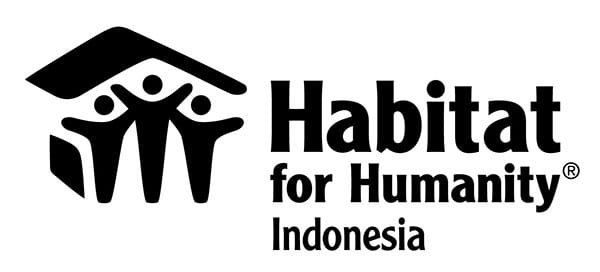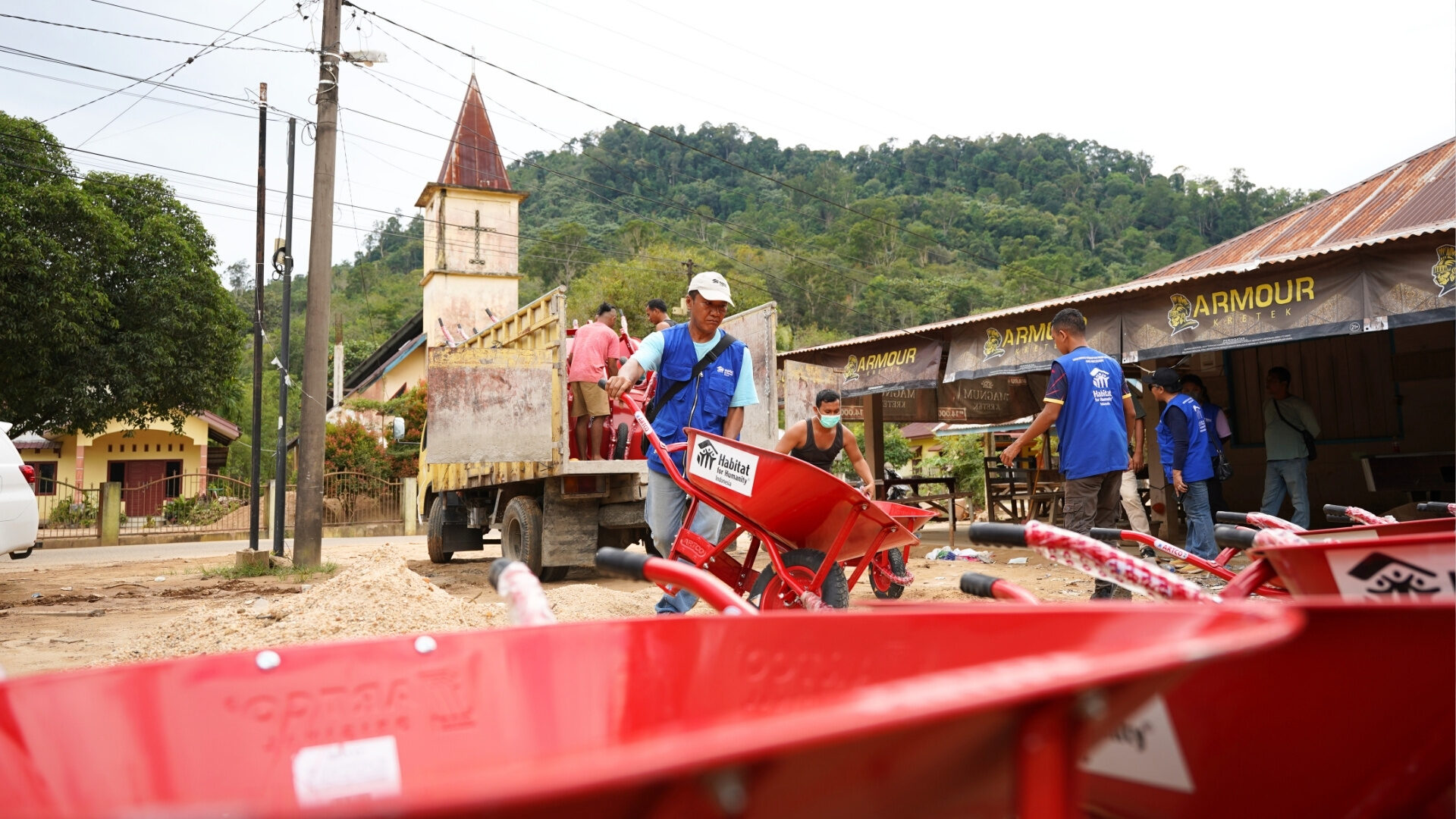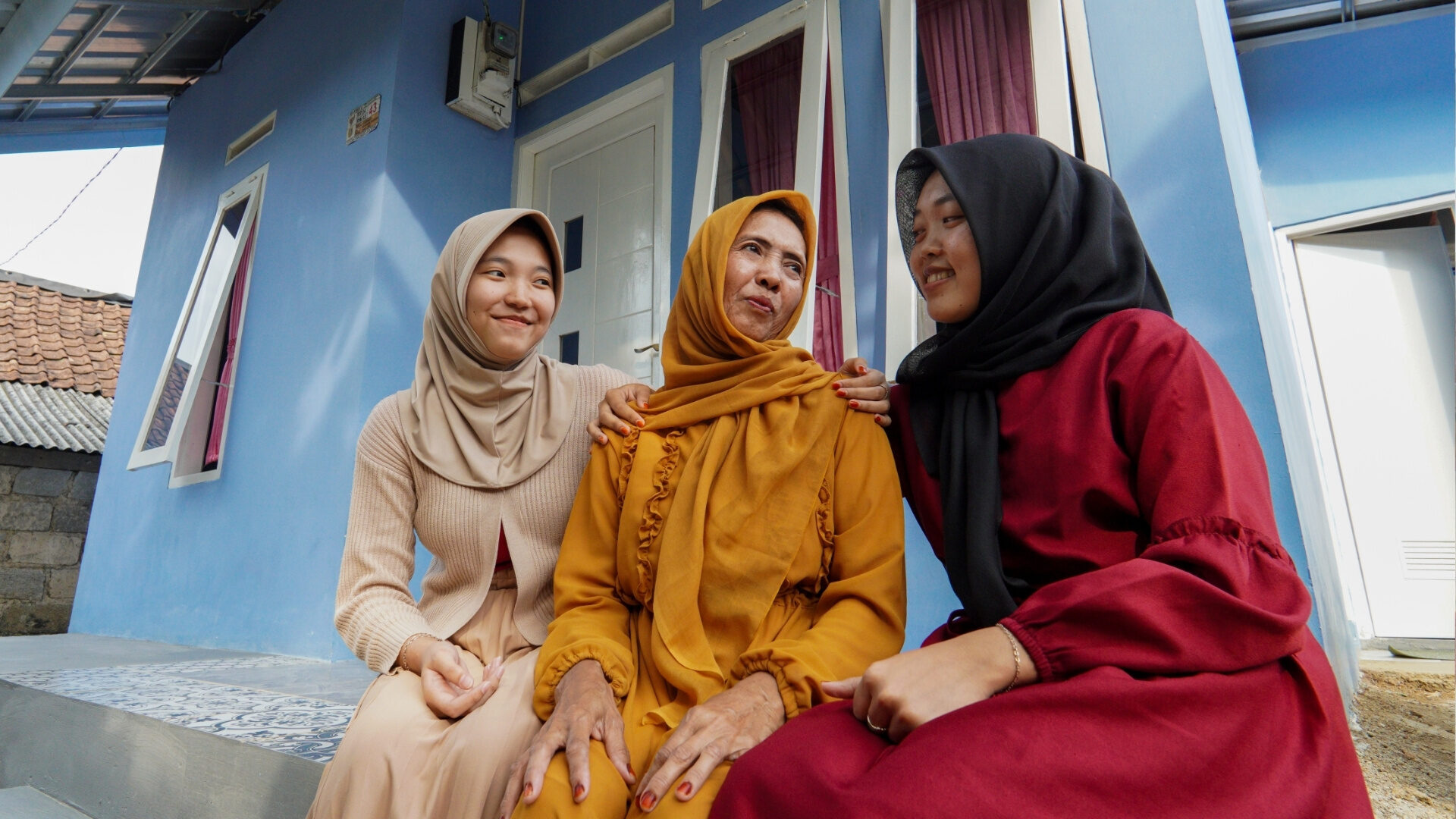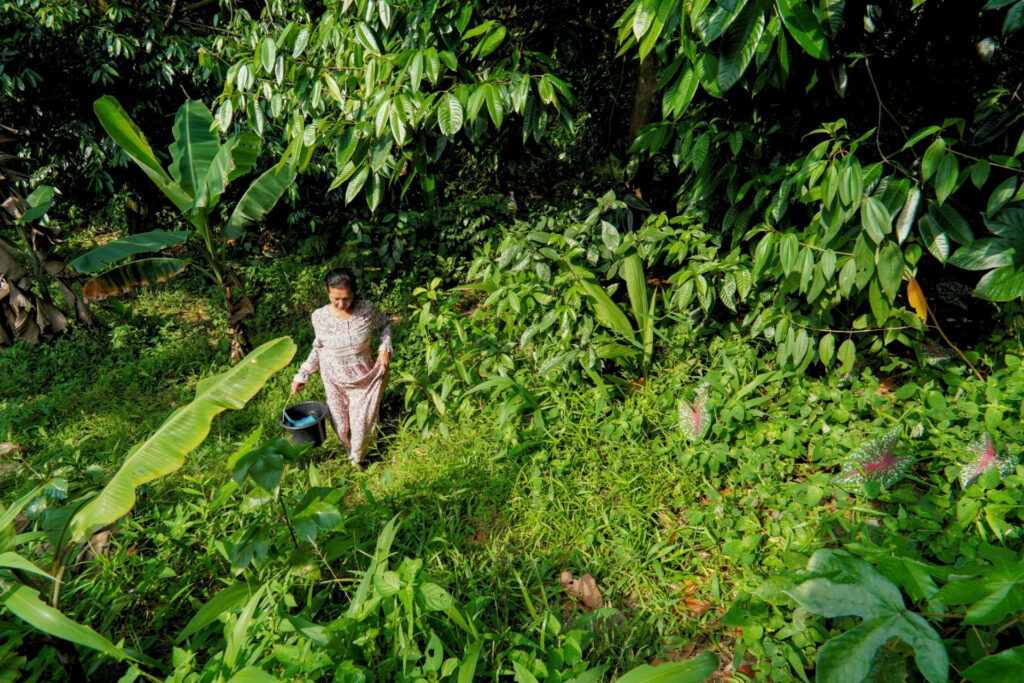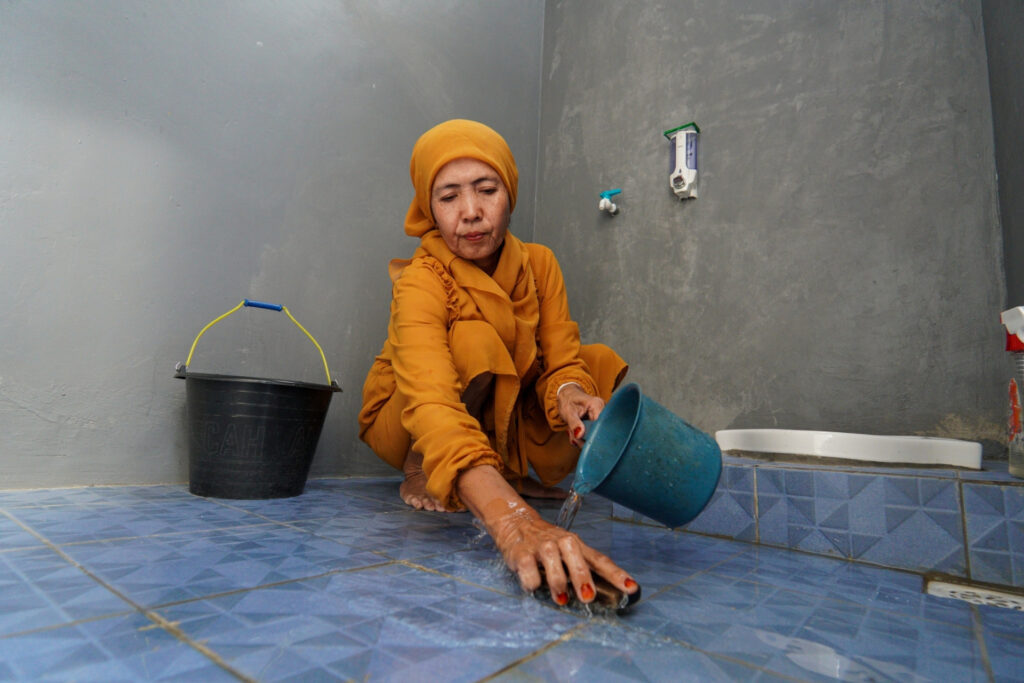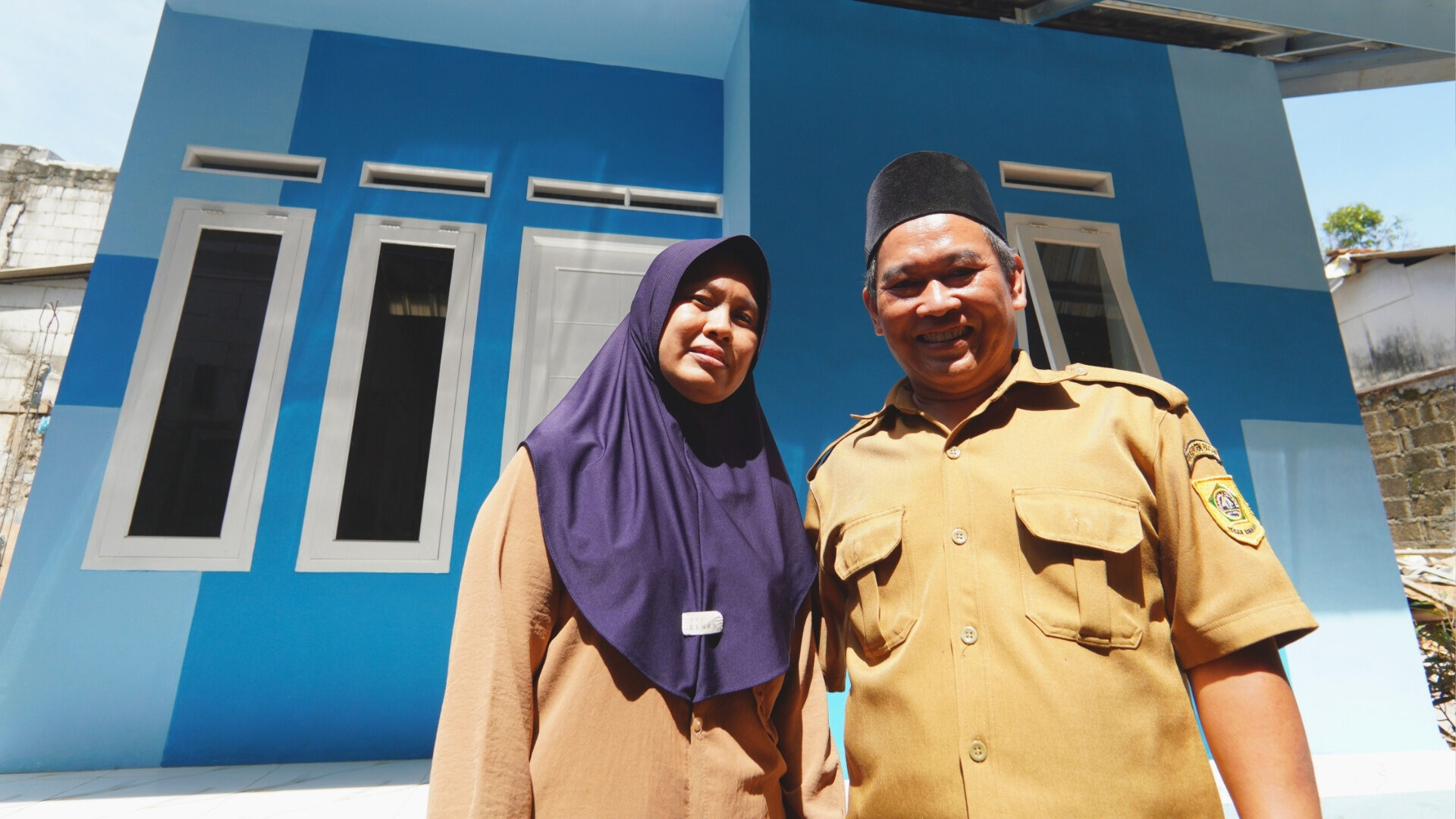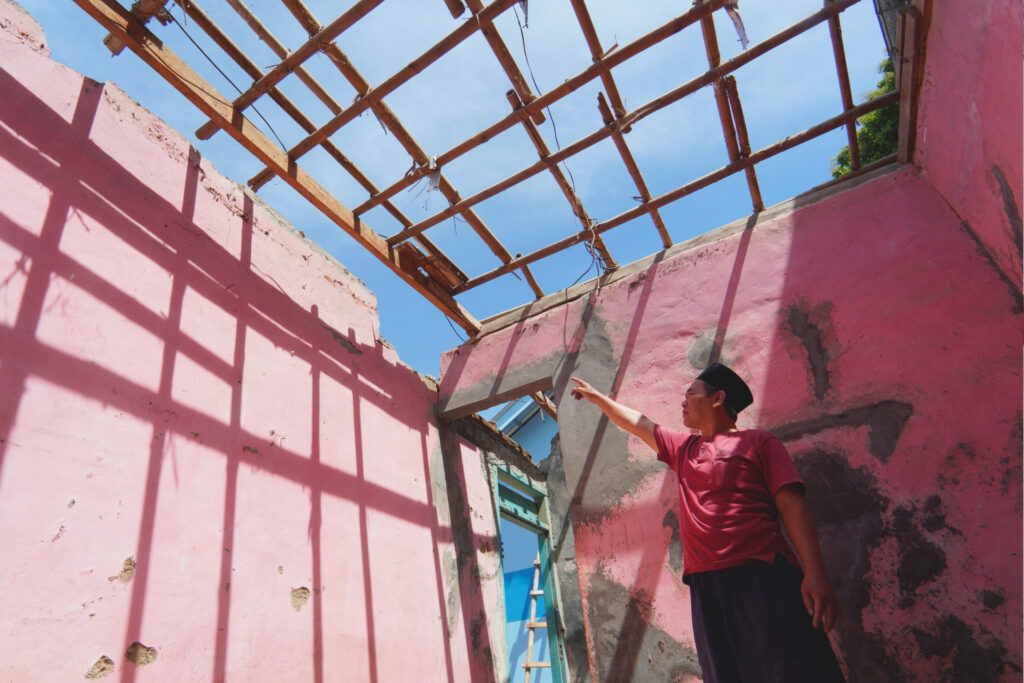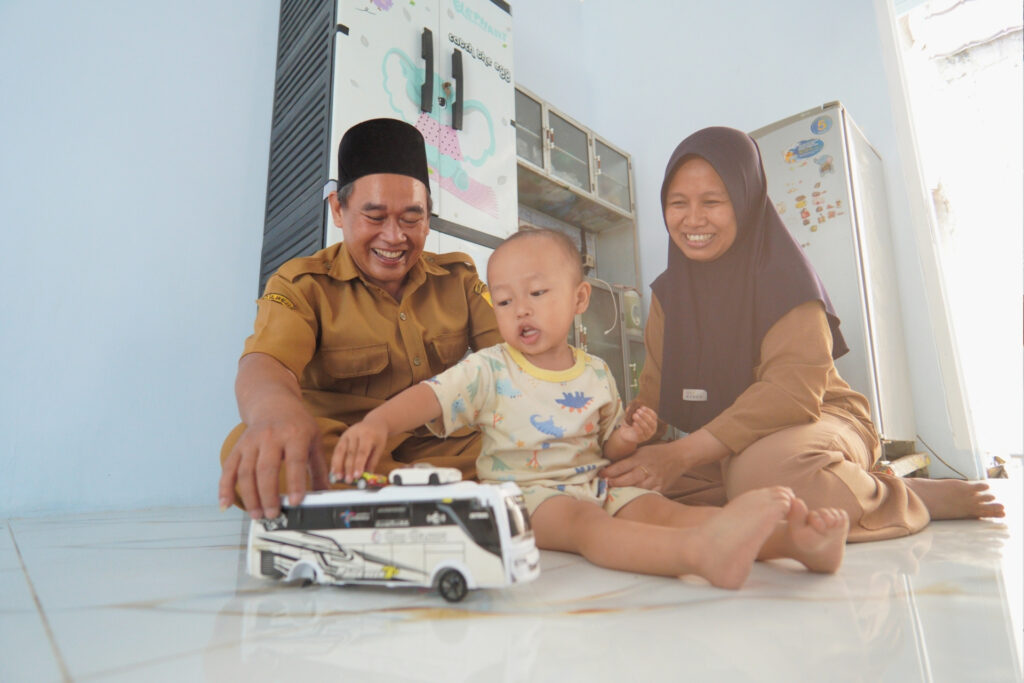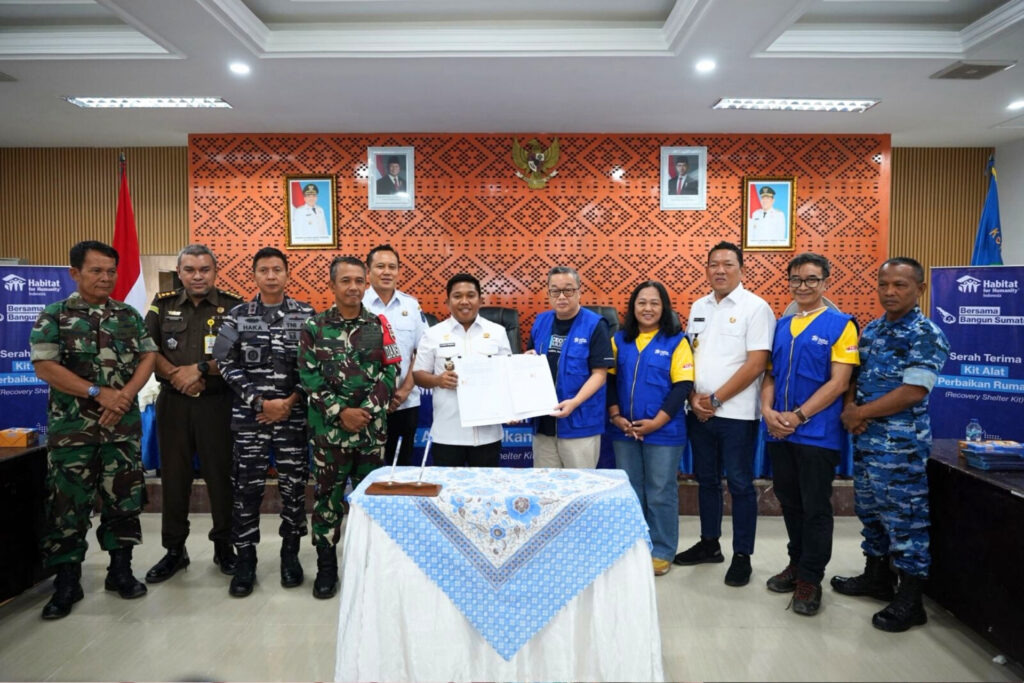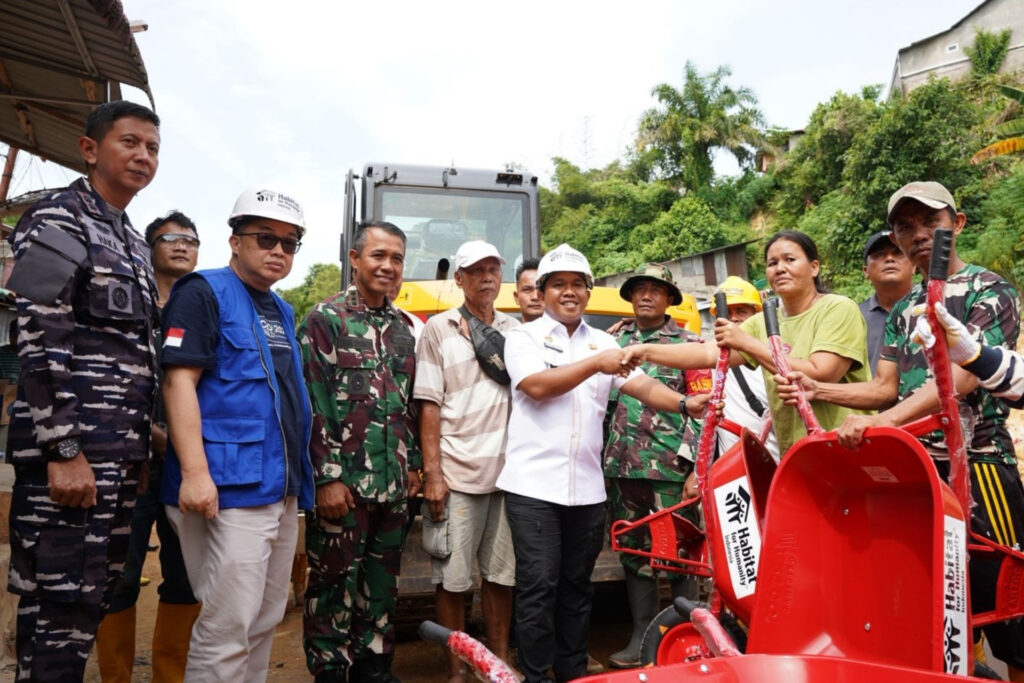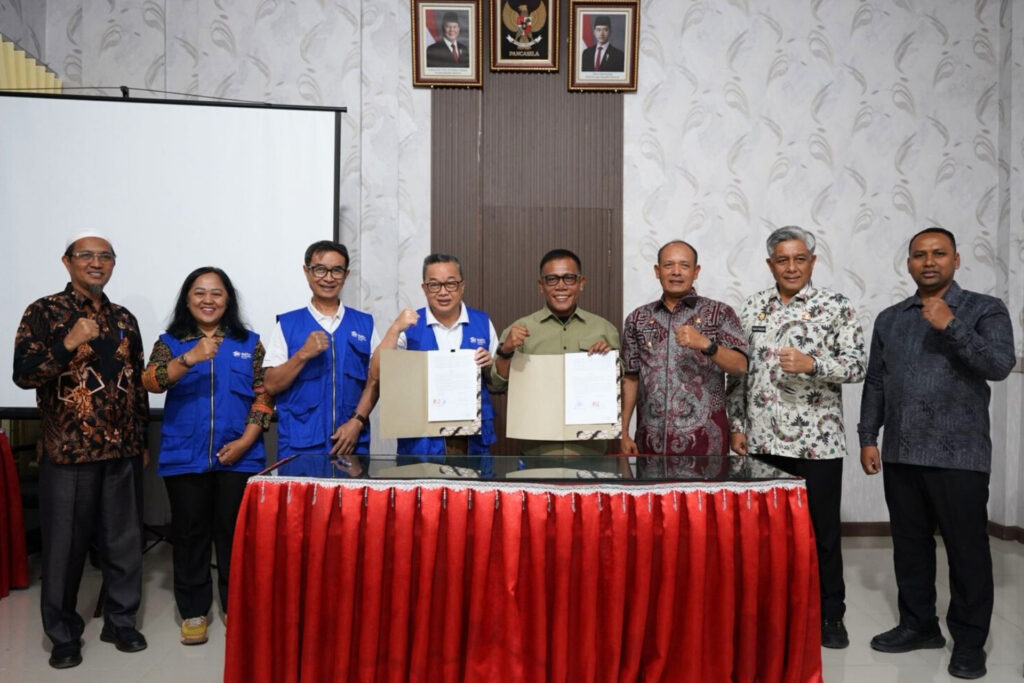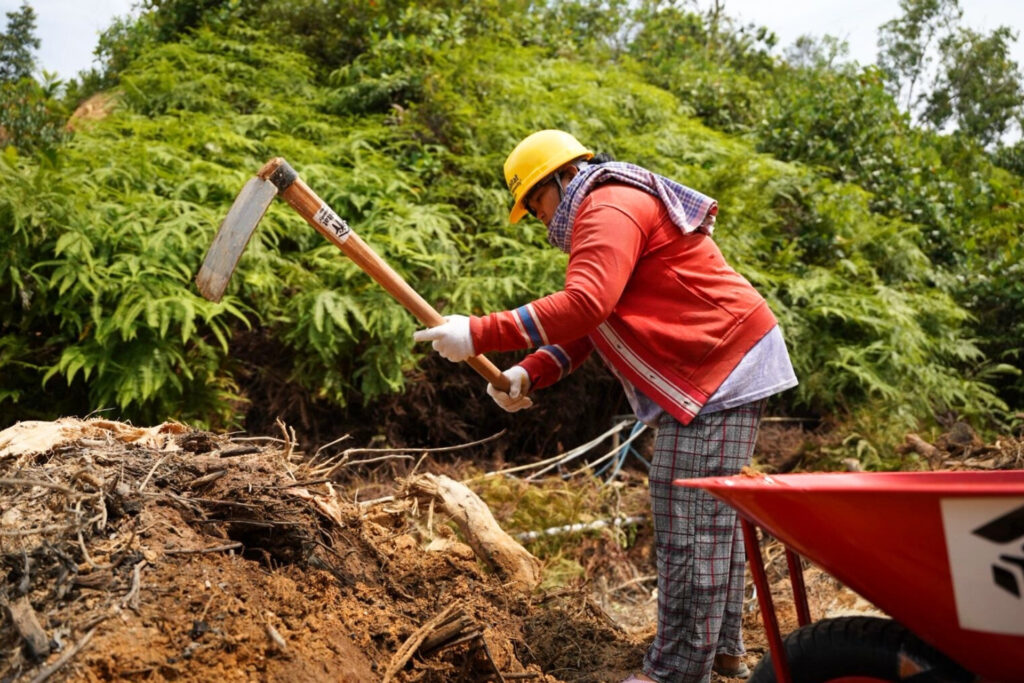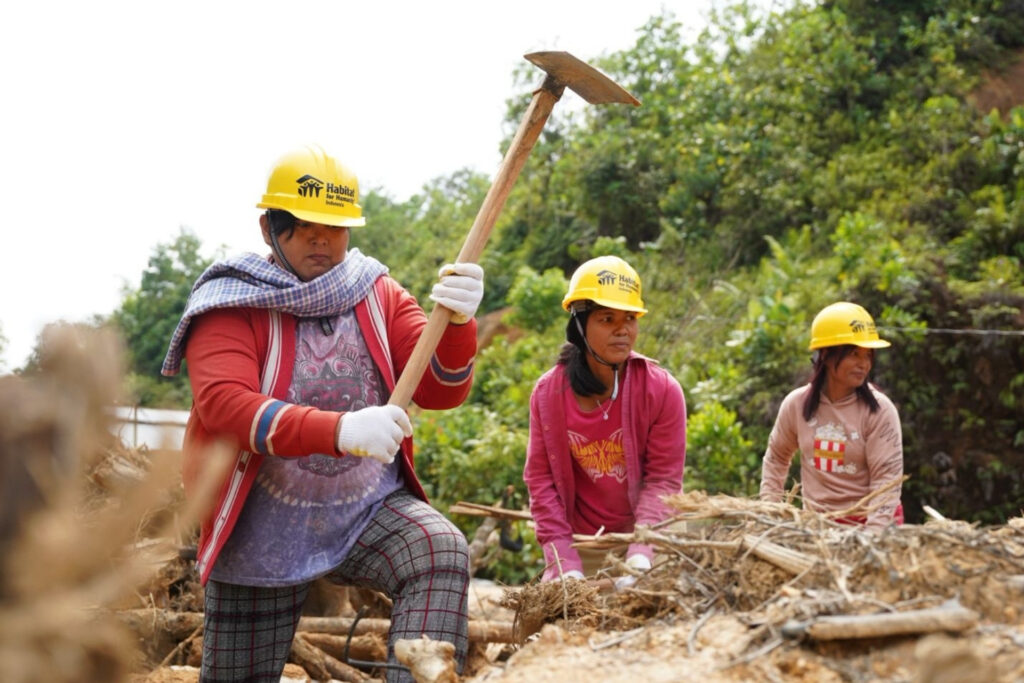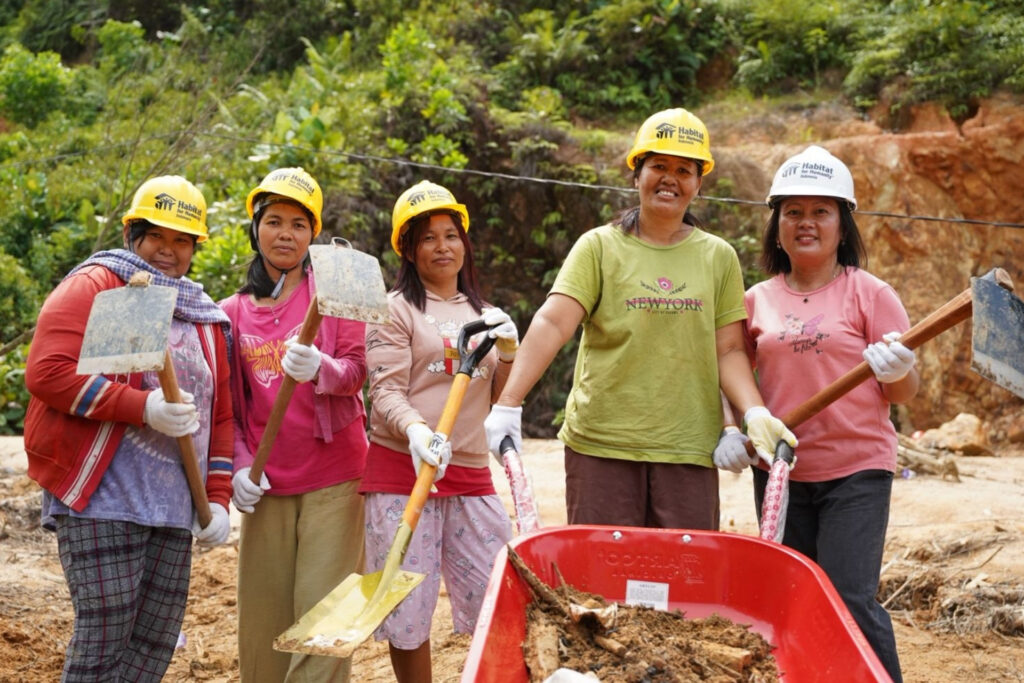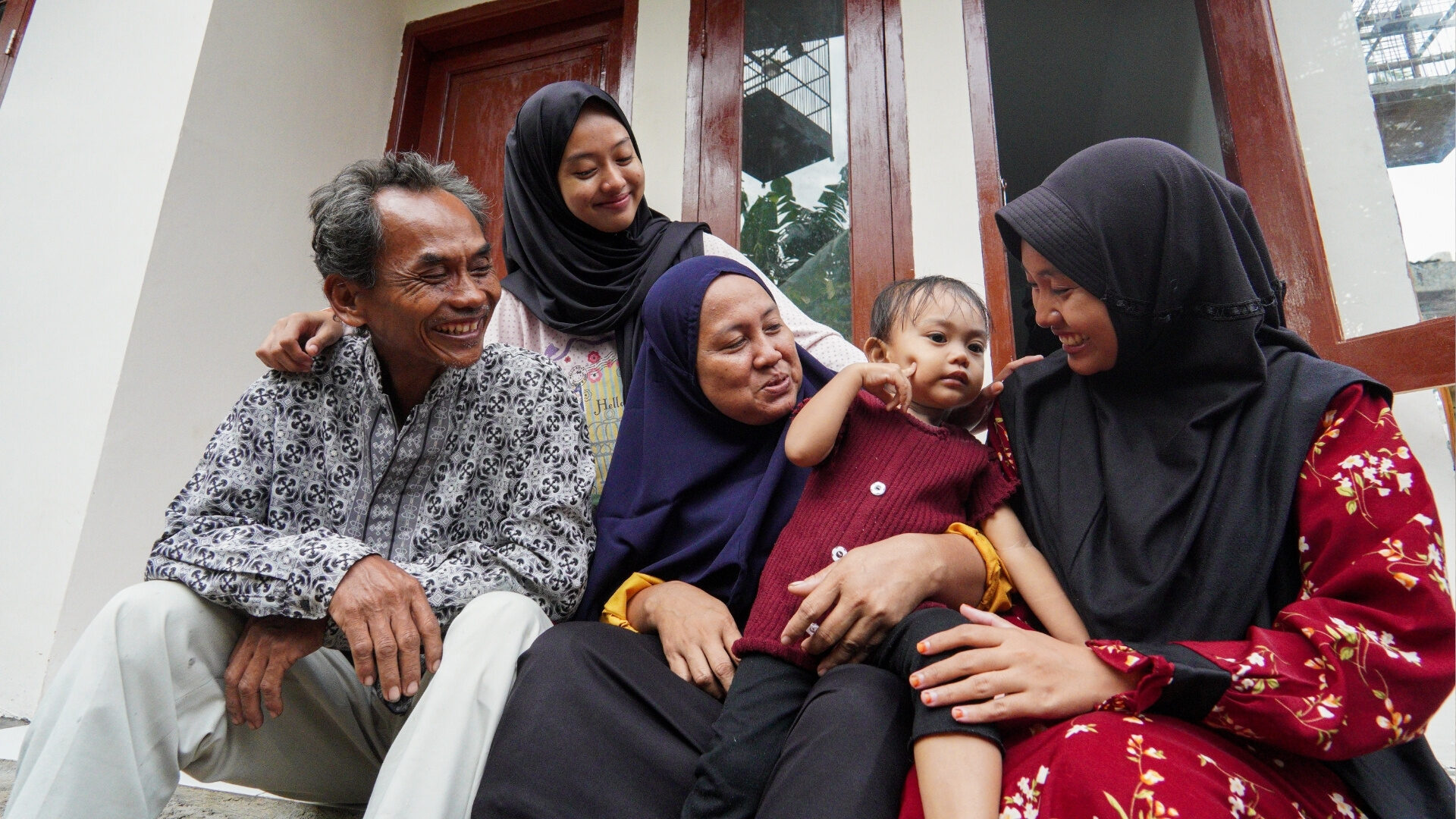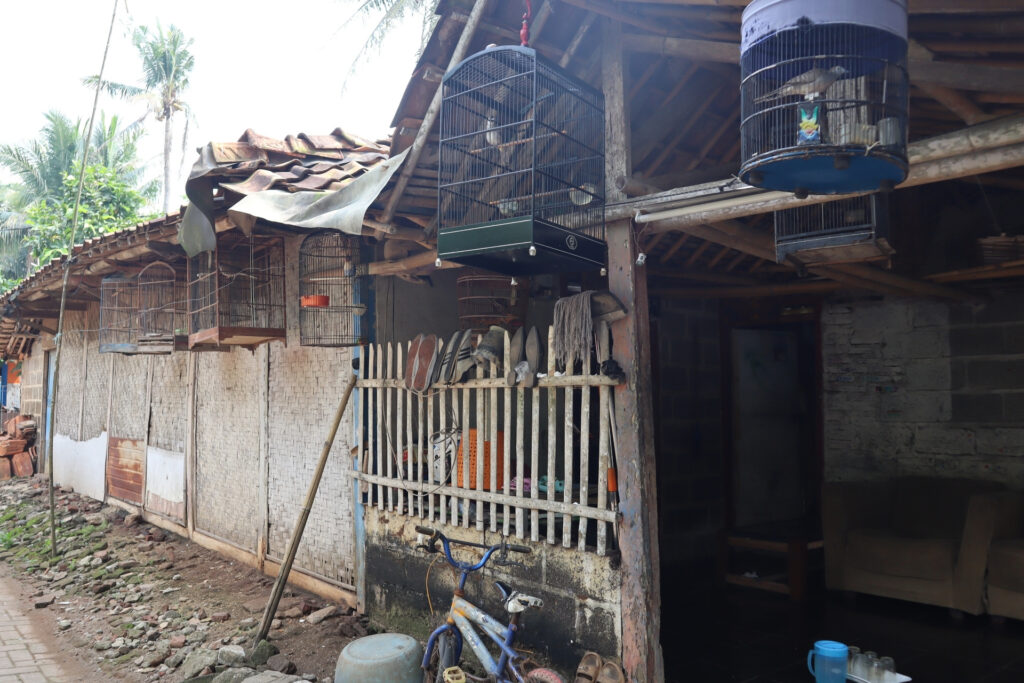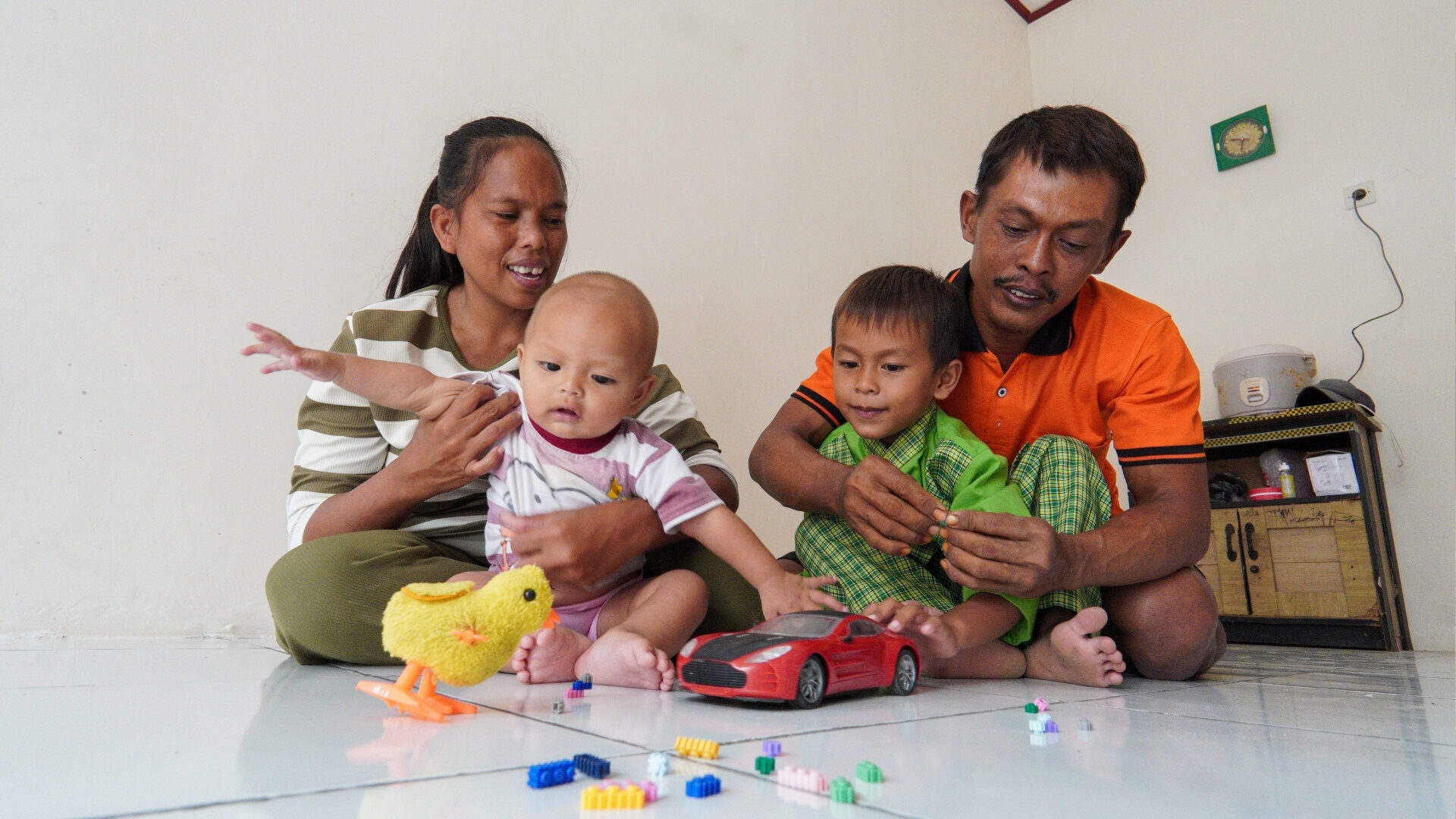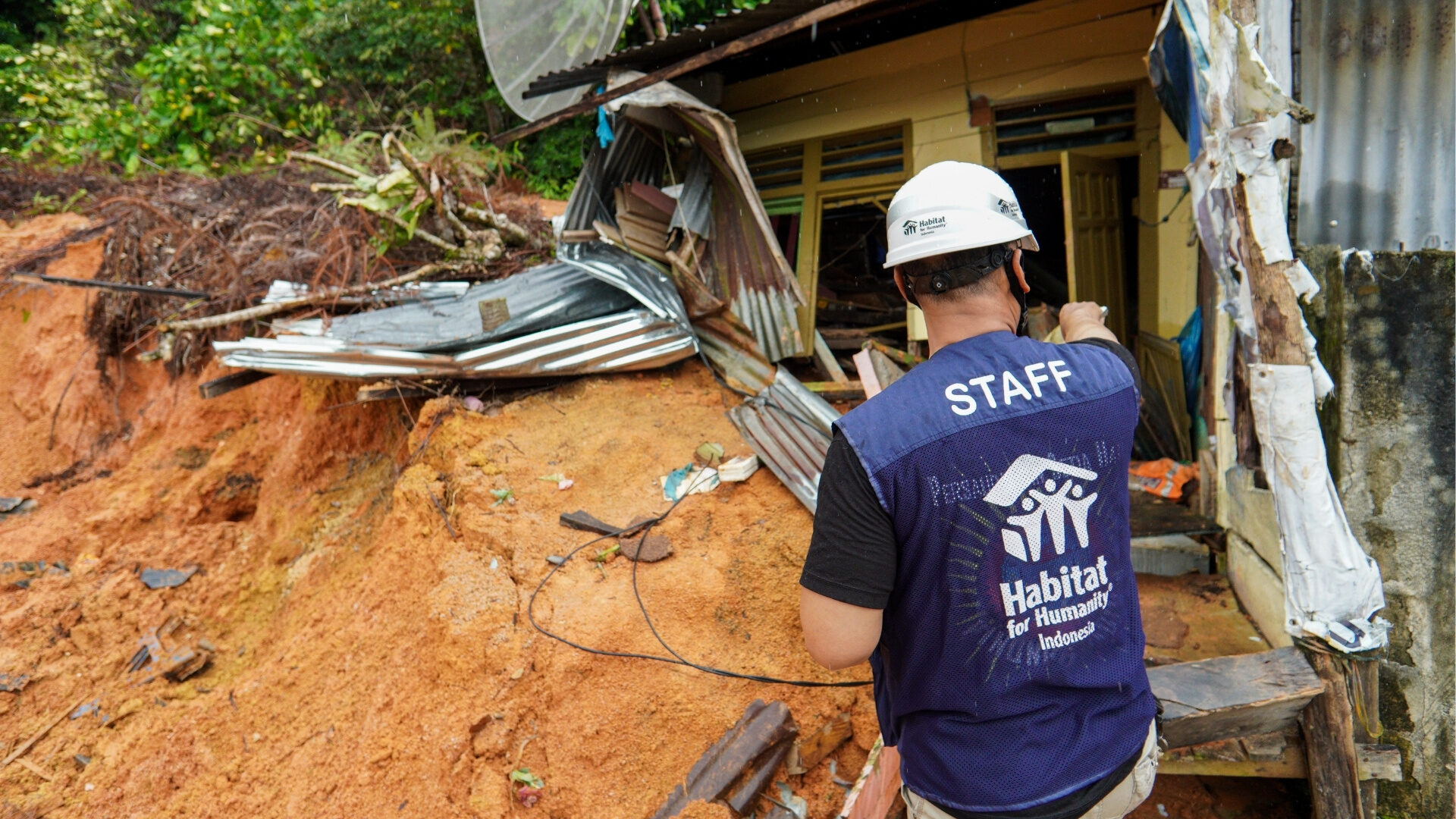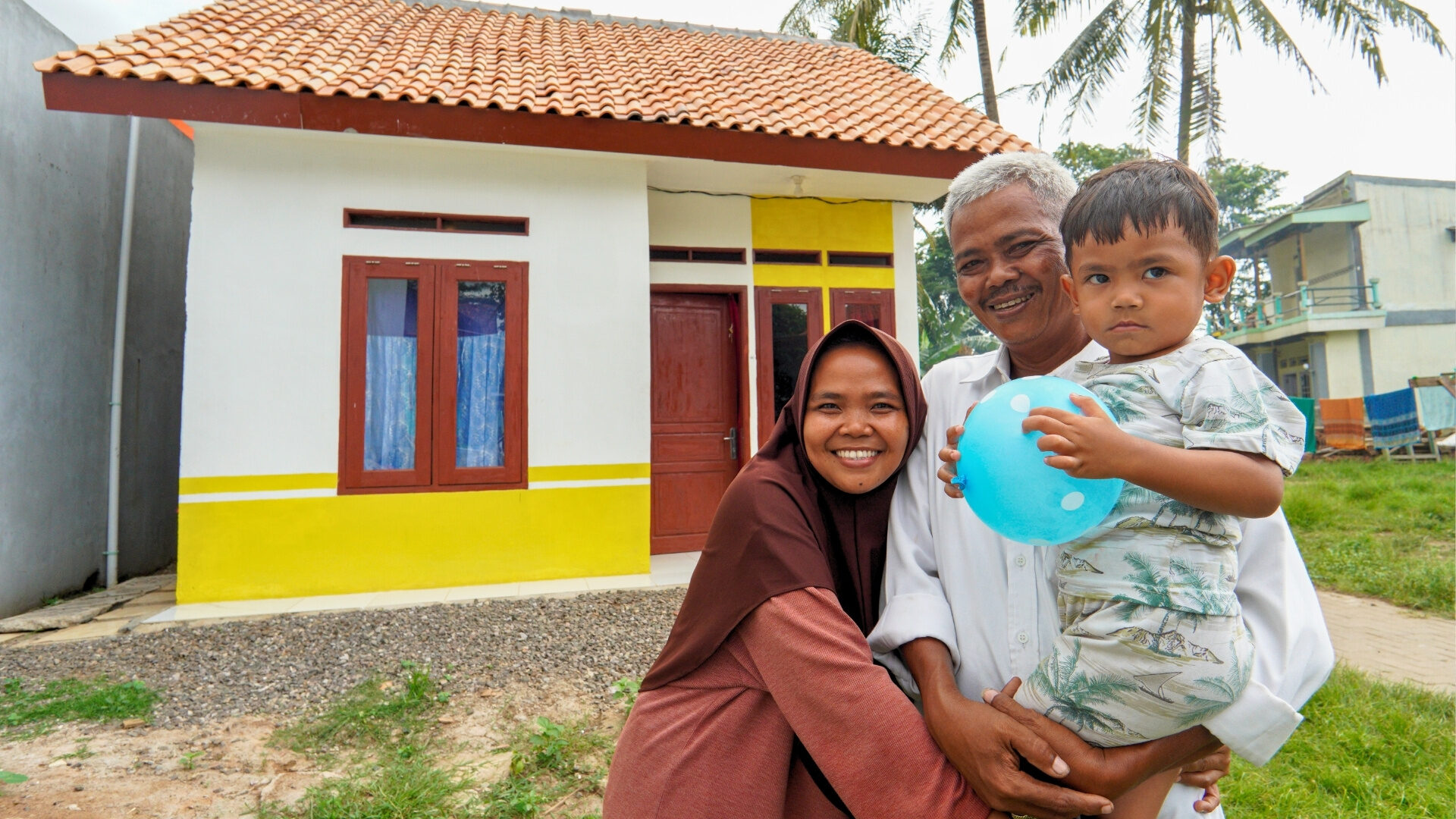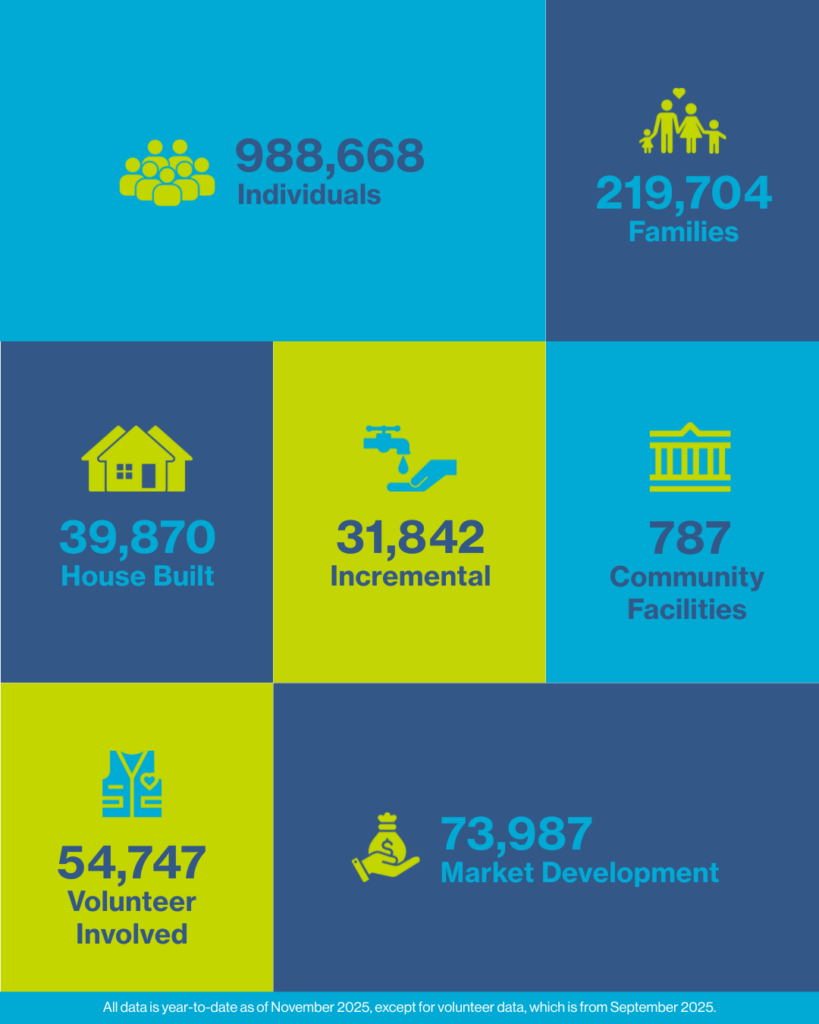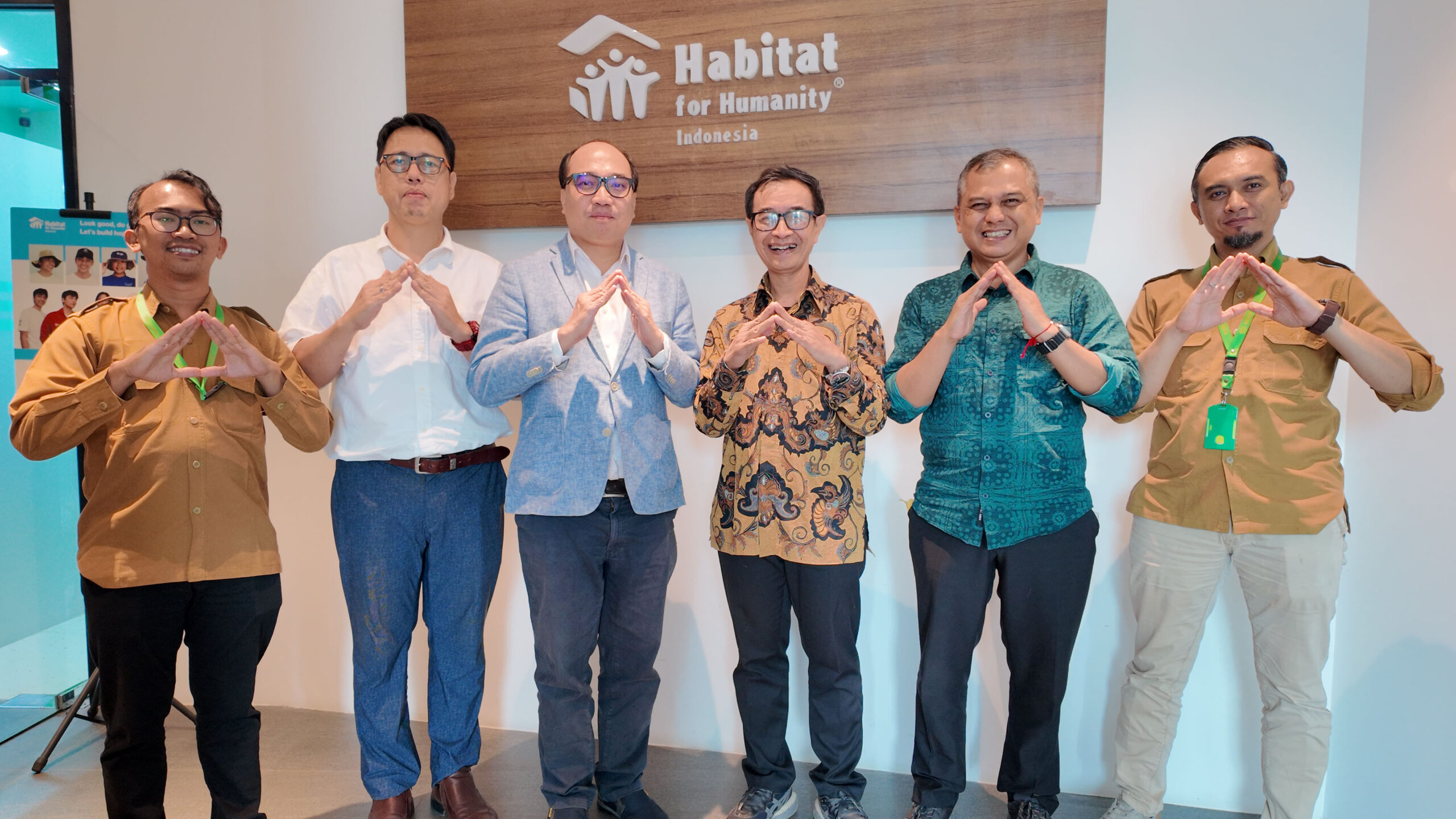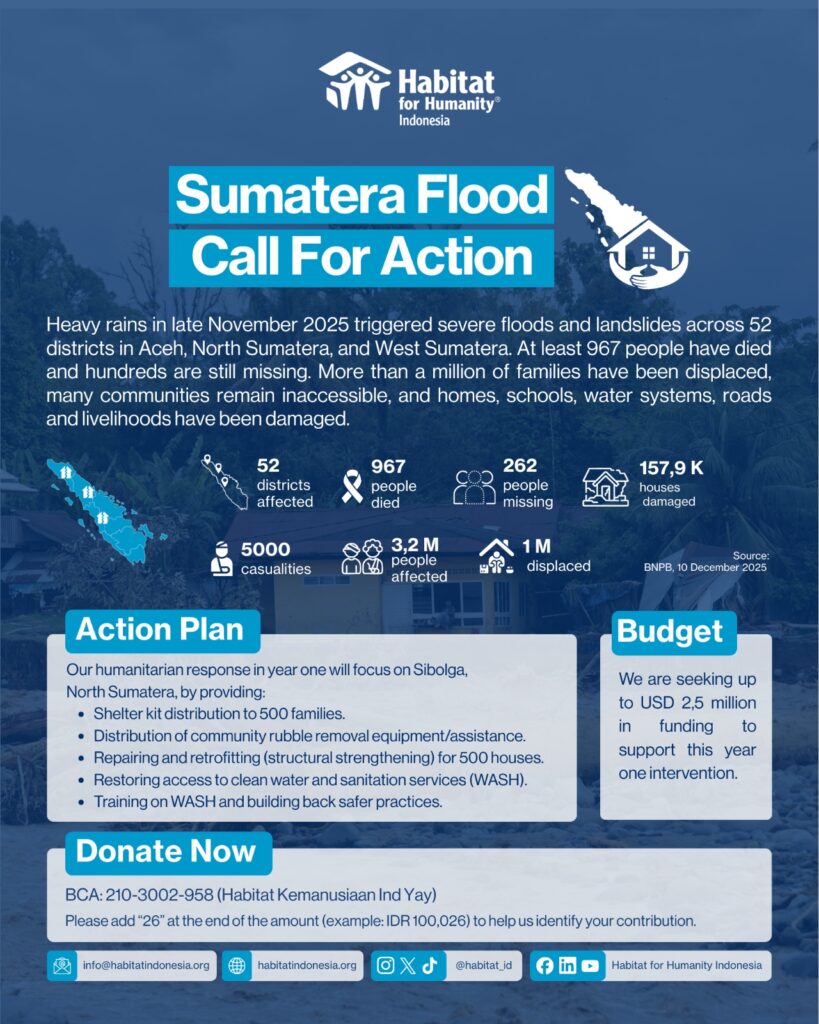Habitat Indonesia Reaches 676 Families, Strengthens Post-Disaster Recovery in North Sumatra
Central Tapanuli, 10 February 2026 – Habitat for Humanity Indonesia continues to support families affected by flash floods and landslides in Sibolga City and Central Tapanuli Regency, North Sumatra. As the response moves beyond the emergency phase, the focus has now shifted to environmental recovery and housing repairs, enabling communities to return to safer and more decent living conditions.
On January 31, 2026, the Habitat Indonesia team continued the distribution of community shelter kits, reaching 170 households in Tukka Village, Tukka Subdistrict, Central Tapanuli Regency. The assistance focused on providing wheelbarrows to accelerate debris removal, transport remaining disaster materials, and support the spirit of community cooperation in restoring neighborhoods and small-scale public facilities.
This distribution complements the assistance that had been provided earlier. By the end of January 2026, a total of 676 families across four subdistricts in Sibolga City and one subdistrict in Central Tapanuli Regency had received support in the form of both family shelter kits and community shelter kits.
According to Handoko Ngadiman, National Director of Habitat for Humanity Indonesia, this distribution marks the first step in Habitat Indonesia’s long-term commitment in North Sumatra. Through collaboration with the governments of Sibolga City and Central Tapanuli Regency, the recovery process is designed to align with local disaster risk mitigation efforts. “Our focus is not only on rebuilding houses, but also on strengthening community resilience so that families are better prepared to face future disasters,” he said.






Read also: Habitat for Humanity Indonesia Distributes Shelter Kits and Debris-Cleaning Tools in North Sumatra
Since December 10, 2025, the Habitat Indonesia team has consistently conducted rapid assessments followed by in-depth assessments to identify the needs of survivors, particularly homes with minor to moderate damage. The findings serve as the foundation for implementing repair and retrofitting programs for 500 houses over the next two years to improve structural safety.
Looking ahead, Habitat Indonesia also plans to rebuild homes for families who lost their houses due to severe damage. This effort simultaneously promotes women’s empowerment by involving mothers as key drivers in the repair and reconstruction process, enabling them to play an important role in rebuilding their families’ and communities’ lives.
All of these efforts are made possible through the support of donors, partners, and various stakeholders who continue to work hand in hand with Habitat for Humanity Indonesia. Habitat Indonesia still welcomes #HabitatFriends who wish to take part in the post-disaster recovery efforts in Sibolga and surrounding areas. Your support will help more families gain access to safe, decent, and resilient homes.
Contribute through: kitabisa.com/campaign/bangunharapansibolga
Photo: HFHI/Budi Ariyanto
Writer: Kevin Herbian
(kh/av)
